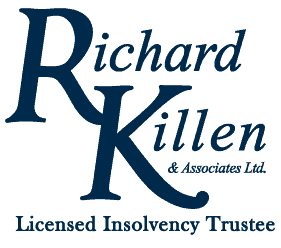Understanding the Psychology of Credit Card Spending – What Ontario Consumers Need to Know
Posted on: November 17, 2025Posted in Credit, Debt | Comments Off on Understanding the Psychology of Credit Card Spending – What Ontario Consumers Need to Know

Ever wonder why it’s so easy to swipe your credit card — and so hard to pay it off later? The psychology of credit card spending helps explain why so many people in Ontario fall into patterns of overspending. It’s not just about budgeting — it’s about how our brains respond to money, emotion, and convenience.
And in Ontario, those patterns are shaped by unique pressures. The high cost of living in cities like Toronto and North York — from rent and groceries to transit and childcare — can push people to rely on credit just to get by. Cultural expectations across diverse communities may also influence how we view debt, spending, and financial success. Add in the constant stream of marketing and social media, and it’s easy to see how even smart, responsible consumers can lose track of their financial boundaries.
Understanding what drives these habits is the first step toward taking control. And if things feel overwhelming, a Licensed Insolvency Trustee can help you explore real solutions — with compassion, clarity, and options tailored to Ontario’s legal and financial landscape.
Why We Overspend on Credit Cards
Overspending isn’t a personal failure — it’s often a mix of emotional triggers and mental shortcuts. Here’s what’s really going on:
- 1. It Doesn’t Feel Like Real Money
When you use a credit card, you’re not seeing cash leave your hand or your bank balance drop immediately. That physical and emotional disconnect makes spending feel painless — but it’s not. Psychologists refer to this as reducing the “pain of paying,” and it’s one of the key reasons why people overspend on credit cards. Without a visible consequence, it’s easier to say yes to purchases you wouldn’t otherwise make.This is especially common with contactless payments. The tap-and-go culture minimizes friction, making it easier to approve purchases with little thought. Over time, this can lead to a pattern of unconscious overspending.
- We Chase Rewards
Many people are drawn in by rewards programs, leading them to use their cards to earn travel points, cashbacks, or discounts — which feel like a bonus for spending. But the catch is that these perks often push people to spend more than necessary just to “maximize rewards.” Rewards can trick us into believing we’re being financially savvy, even if we’re carrying a balance and paying interest.This kind of justification — focusing on short-term gains like travel miles while ignoring long-term costs — is a subtle form of emotional spending. If you’re not paying your balance in full every month, the interest you pay will almost always cancel out the value of any rewards.
- Emotions Drive Decisions
Beyond rewards, deeper emotional triggers often shape how and when we spend. Stress, boredom, loneliness, or even celebration can lead to impulse buys. These emotional spending triggers often go unnoticed. You might shop to feel better after a tough day or treat yourself after a win — but these habits can quietly build debt. - We Compare Ourselves to Others
Social media and peer pressure can push us to spend just to keep up. This is especially true for Ontario consumers and credit card debt holders living in high-cost areas like Toronto or North York, where lifestyle comparisons are common. - We Justify It
“It was on sale” or “I deserved it” are ways we talk ourselves into purchases we don’t need. This kind of rationalization — known as justification bias — makes it easier to ignore the long-term impact of spending.
Spotting the Signs Before Debt Builds
Credit card debt rarely happens overnight. It’s often the result of small, repeated behaviors that feel harmless in the moment but quietly accumulate over time. Spotting these early signs can help you course-correct before things spiral — and empower you to make intentional choices with your money.
Here are some common red flags to watch for:
- Impulse Buying During Sales or Promotions
If you find yourself drawn to flash sales, limited-time offers, or “buy now, pay later” deals, pause and ask: Would I buy this if it weren’t discounted? Impulse purchases often feel exciting, but they can lead to clutter, regret, and mounting balances. Retailers design these promotions to trigger urgency — recognizing that pattern helps you resist it. - Spending to Cope With Emotions
Shopping can feel like a quick fix for stress, sadness, boredom, or even celebration. You might treat yourself after a tough day or reward yourself for a win. While occasional indulgence is normal, consistent emotional spending can mask deeper needs and lead to financial strain. If you notice a pattern, consider journaling your feelings before making a purchase — or finding non-financial ways to self-soothe. - Using Credit Cards Mainly for Rewards
Rewards programs can be helpful — but they shouldn’t drive your spending. If you’re buying things just to earn points or cash back, it’s worth reevaluating. The value of the reward rarely outweighs the interest you’ll pay if you carry a balance. This behavior is especially common among people trying to “hack” their finances, but it can backfire without a clear repayment plan. - Making Only Minimum Payments
Paying just the minimum due each month might feel manageable, but it’s a warning sign. It means you’re not reducing your principal — and interest is quietly building. Over time, this can turn a small balance into a long-term burden. If you’re consistently making minimum payments, it’s time to reassess your budget and explore credit card debt solutions in Ontario that offer relief. - Avoiding Statements or Feeling Anxious About Your Balance
Do you dread checking your credit card statement? Do you avoid logging into your banking app or opening bills? This kind of avoidance is often rooted in shame or fear — and it’s more common than you think. The good news? Facing your numbers is the first step toward change. You don’t have to do it alone. Support is available, and many financial counselling in Ontario services offer judgment-free guidance.
Practical Tips: Simple Ways to Take Back Control
You don’t need to overhaul everything overnight. Small changes can make a big difference. Here are practical, manageable steps to help you regain control:
- Track Your Spending
Use a budgeting app or a simple notebook to monitor every transaction. Categorize your purchases to spot patterns — especially emotional ones. This visibility helps you make informed decisions and identify areas for improvement. - Set Limits
Lower your credit limit or use prepaid cards for non-essentials. This creates natural boundaries and reduces the temptation to overspend. If you’re worried about emergencies, keep one card with a higher limit but use it only for essentials. - Pause Before Buying
Try a 24-hour rule for anything that’s not urgent. If you see something you want, wait a day before buying. This delay helps disrupt impulsive behavior and gives you time to reflect on whether the item truly adds value. - Use Cash for Fun Stuff
Switch to cash or debit for categories like dining, entertainment, and shopping. The physical act of handing over money increases awareness and makes spending feel more “real.” - Unsubscribe from Temptation
Reduce exposure to marketing emails, influencer content, and retail apps that encourage spending. Curate your digital environment to support mindful consumption and financial wellness. - Automate Payments and Savings
Set up automatic payments to avoid late fees and automate savings to build financial resilience. Even $25 a week into a high-interest savings account can create a buffer for unexpected expenses. - Get Support
If spending is tied to emotional distress, consider speaking with a therapist or financial counselor. Addressing the root cause is essential for lasting change. Many financial counselling in Ontario services offer free or low-cost support tailored to your needs.
When Debt Feels Too Big: Licensed Insolvency Trustee Support
If your credit card debt feels unmanageable — if you’re missing payments, getting calls from collectors, or unable to see a way out — it may be time to speak with a professional. A Licensed Insolvency Trustee in Ontario can help you explore real options. They’re federally regulated professionals who offer free consultations and guide you through solutions like:
- Consumer Proposal
A consumer proposal in Ontario is a legal agreement to pay back part of your debt over time — often with no interest and no penalties. It’s a popular alternative to bankruptcy for those with stable income and manageable debt levels. - Bankruptcy
Bankruptcy is a last-resort option that wipes out most unsecured debt and gives you a fresh start. It’s not a failure — it’s a reset. LITs will walk you through the process and help you understand what it means for your future. - Creditor Negotiation
LITs handle the calls and paperwork so you can breathe again. They’ll negotiate with creditors on your behalf, stopping collection calls, wage garnishments, and legal action. - Education and Support
LITs don’t just help you resolve debt — they help you build better habits. You’ll get tools, resources, and guidance to avoid future problems and make informed financial decisions.
Unlike debt settlement companies, LITs are licensed by the government and held to strict ethical standards. They don’t make false promises — they offer real help and debt relief options in Ontario that are tailored to your needs.
Final Thoughts
Debt isn’t just about dollars — it’s about emotions, habits, and how we think. Whether you’re just starting to notice your spending patterns or you’re deep in debt, there are tools and people who can help — and a Licensed Insolvency Trustee in Ontario can guide you toward lasting financial freedom.
Credit cards offer freedom and flexibility, but they also tap into powerful psychological triggers. For many, the journey into debt begins with small, seemingly harmless purchases — a coffee here, a sale item there — that add up over time. Understanding what drives these habits is the first step toward taking control.
You deserve peace of mind. You deserve a fresh start. And it begins with recognizing the psychology of credit card spending and choosing to take action.
Let’s Talk — You Deserve a Fresh Start
If credit card debt is weighing on you, now’s the time to take that first step. Our Licensed Insolvency Trustees in Ontario offer free, confidential consultations — no pressure, no judgment, just real solutions tailored to your situation.
Whether you’re curious about a consumer proposal, need help navigating debt relief options in Ontario, or simply want to understand your choices, a conversation can change everything.
Reach out today and book your consultation with a trusted LIT near you: Find a Licensed Insolvency Trustee in your area
Contact Richard Killen
FREE No Commitment Consultation
Contact us now for a fresh start!
“Serving Toronto & the GTA for over 25 years.”




Recent Blog Posts
- Is Holiday Credit Card Debt Pushing You Over the Limit?
- When Holiday Loan Debt Turns Into Long-Term Trouble
- Holiday Loans Ontario: Are They Ever a Good Idea?
- How to Talk to a Licensed Insolvency Trustee in Ontario About Credit Card Debt
- Understanding the Psychology of Credit Card Spending – What Ontario Consumers Need to Know






